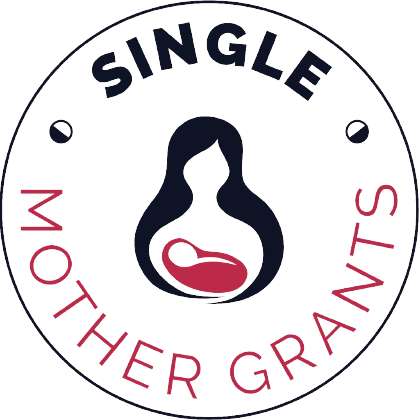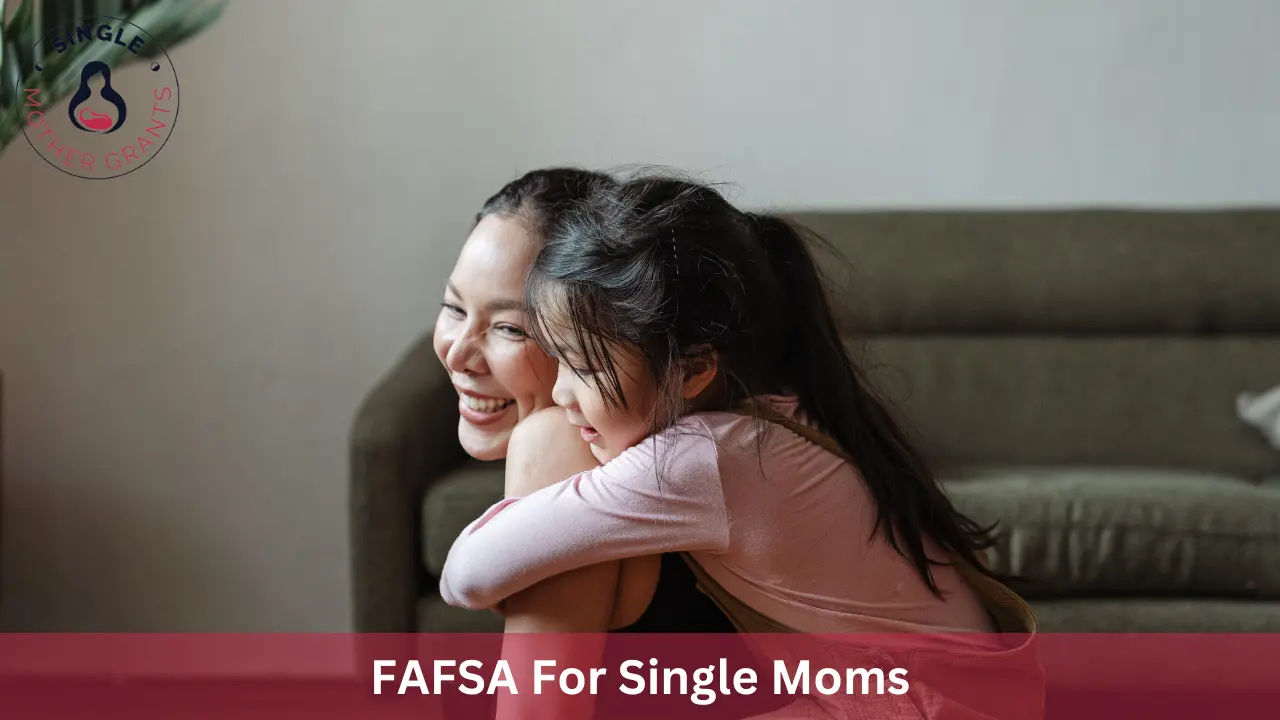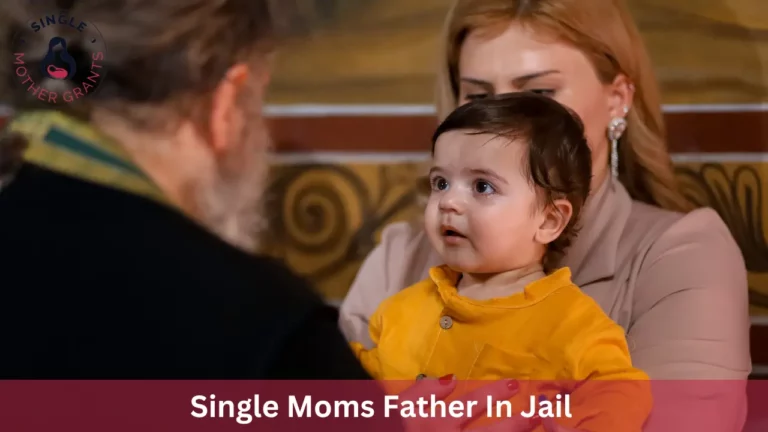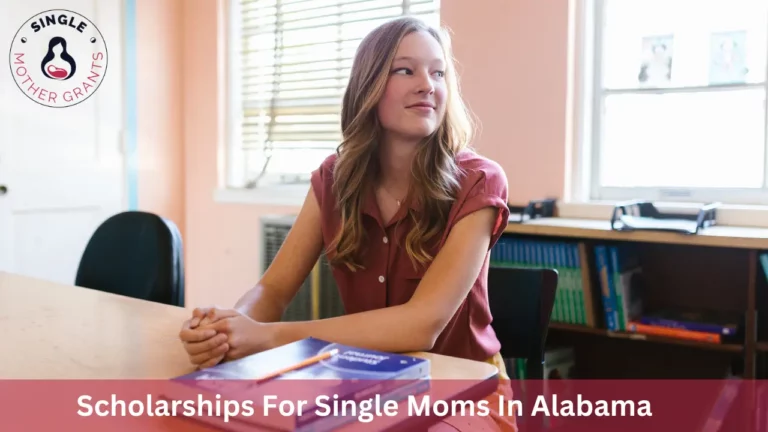FAFSA For Single Moms
FAFSA stands for Free Application For Federal Student Aid. FAFSA for single moms holds significant importance that can help them to get grants, scholarships, federal student loans, and work-study programs. There are no particular income limitations to apply. Many private and state colleges use FAFSA for determining the financial aid eligibility of single moms students. If you want to qualify for financial aid, you need to submit a FAFSA every year.
Can I Get FAFSA Grants For Single Moms?
Yes, single moms with robust financial needs can be eligible for FAFSA grants based on their EFC and other eligibility criteria. Filing FAFSA is an incredible opportunity for low-income single moms who want to return to college or pursue higher education but are facing financial difficulty. The FAFSA is a series of questions related to a student’s income, assets, and other factors to determine their financial needs. You also have to determine the number of children you have in your household. Based on all these factors, FAFSA will come up with an EFC or expected family contribution. The EFC will help your school to calculate the amount of financial aid you can receive in the form of a scholarship.
How Does FAFSA Work?
FAFSA is an official form that single moms and other low-income students can use to apply for a variety of educational assistance programs, financial assistance, and loans from the federal government. Individual colleges, universities, state colleges, and private scholarship programs rely on the information provided in the application. The information on your application will determine whether you will qualify for non-need-based aid, need-based financial aid, or a combination of the two. Single moms who have not found an application yet and wish to know their EFC or their likelihood to qualify for financial aid can use the office of the Department Of Education’s Federal Student Aid Estimator.
Every college-bound student and their parents must know about how the process of FAFSA works. Many students dismiss the idea of filing for FAFSA to get financial college aid as they assume that they will be disqualified on grounds of making too much money. Regardless of your family earnings, you can be eligible to receive financial assistance such as state, federal, or school-based aid along with merit-based scholarship programs by filing FAFSA. FAFSA considers students’ assets such as investments and bank accounts into consideration to determine EFC however other items like life insurance policies, retirement accounts, and annuities are excluded. It makes sense for single mothers returning to college to fill out the FAFSA. While some single moms students with robust financial needs can qualify for subsidized loans and federal grants some students can be eligible for unsubsidized federal loans and non-need-based aid.
How Can Single Moms Complete FAFSA?
Single moms can visit the website of the Department of Education to learn how to file FAFSA applications. If you have not filed a FAFSA application in the past then you can enter your previous information into your present application form. The below-mentioned steps will help you to complete FAFSA and be eligible for federal student aid programs.
1. Create Your Federal Student Aid ID
Even though this is not a mandatory step, creating a federal student aid ID is a good option for single moms who are looking to apply for FAFSA grants and loan programs. Creating FSA ID will make it simpler for you to find the application date, track your student loan providers or other information.
2. Gather Relevant Documents
Single moms need to gather the required documents to speed up filing for FAFSA. This requires you to have information related to your driver’s license or Social Security number, records of assets, records of untaxed income, federal tax returns, and so on. Single moms who are dependent students have to provide the tax return of their parents, records of untaxed income, and assets.
3. Answer FAFSA questions
While filing the FAFSA form you will be asked multiple questions that will help you to determine whether you are an independent or dependent student. These questions will be related to your residency status and family structure.
4. List The Colleges That You Are Interested In Enrolling
Single moms can list up top 10 schools on their online application or 4 schools if they are submitting a paper version of FAFSA. It is a worthwhile decision to research the guidelines of your state before listing schools on the application form. Each school on your list will receive your FAFSA results and will decide your overall federal aid package.
Eligibility Criteria For FAFSA
The general eligibility criteria to qualify for FAFSA are to have a robust financial need, be a citizen of the United States or an eligible noncitizen, and be enrolled in an accredited or certificate program at a career school or college. There can be additional eligibility requirements that you need to fulfill to qualify for student aid programs. A lot of students are eligible to receive financial aid awards from the federal government that help them to pay for their careers in school or college. The age, race, and field of study are not taken into consideration while determining the eligibility criteria for FAFSA. To be considered for federal student aid or loans for the academic year 2023 to 2024 you need to complete filing the FAFSA form by 30th June 2024. The deadline for filing FAFSA may vary depending on your state.
FAFSA Single Mom Grants
Following is the list of single mom grants which require filling out FAFSA:
1. Federal Pell Grant
Grants for single moms are an attractive option to seek financial aid as they do not require to be repaid. Federal Pell Grant is a popular grant program for college that is intended for single moms students and other low-income students with exceptional financial needs. The federal Pell Grant is awarded primarily to undergraduate students however in some cases single moms pursuing teacher certification programs can also be eligible. The maximum Pell Grant award that a single mom can get is $7395 for the academic year 2023 to 2024. The financial aid office of your college or university will determine how much you can qualify as a student. The financial aid award will consider your school’s cost of attendance as well as your household’s EFC.
2. Federal Supplemental Educational Opportunity Grant (FSEOG)
Single moms pursuing undergraduate studies with exceptional financial needs can qualify for the Federal Supplemental Educational Opportunity Grant Program. The financial aid award for this program ranges between $100 to $4000 based on your application. The federal government offers enough financial assistance to single mothers and other eligible low-income students through the federal Pell Grant program however if you’re unable to cover your educational expenses through this program, then you may be eligible to receive additional funds through FSEOG. Similar to the federal Pell Grant the Federal Supplemental Educational Opportunity Grants are designed for students with limited financial resources.
3. Teacher Education Assistance For College And Higher Education (TEACH) Grant
This grant is for low-income students including single students who are completing teaching-associated course work. The maximum financial award that you can receive is around $4000 annually. To qualify for this award eligible students should sign a TEACH Grant Agreement to work in an elementary school, educational service agency, or secondary school serving low-income students or teach in a high-requirement field for a minimum of four academic years within eight years of course study for which they have received the grant assistance. It is important to note that on failing to fulfill the eligibility requirement your TEACH grant will be converted into a Direct Unsubsidized Loan and you have to repay the assistance that you have received along with interest.
4. Iraq and Afghanistan Service Grants
These loans are available to students with a guardian or parents who have died while serving the military in Iraq or Afghanistan after 9/11. The grant award is similar to the Pell Grant and qualifying single mom students can receive up to $7395 for the academic year 2023 to 2024.
5. Federal Work-Study Programs
Schools in the United States participating in federal work-study programs provide federal government-funded part-time job opportunities to qualifying students with robust financial needs. Single moms students are also eligible to apply for the federal work-study program. These types of programs are available for both undergraduate and graduate students. Applying for federal work-study programs requires single moms to file FAFSA and being eligible for this program will help you to earn a minimum wage with a work-study position.
Apply For FAFSA Student Loans Single Mom
FAFSA Federal Loans irrespective of whether unsubsidized or subsidized tend to be less expensive unlike private loans and also have low-interest and flexible repayment options. Single moms can qualify for the federal student loan programs by filing FAFSA.
1. Federal Direct Subsidized Loans
Applying for a Federal Subsidized Loan helps single moms and low-income students to close the gap if they are unable to cover their educational expenses through FAFSA grants. The federal government pays interest on the direct subsidized loan while the eligible students attend schools. For this, you need to enroll for a minimum of half-time during your school year or a six-month grace period afterward. Subsidized loans are exclusively available to undergraduates therefore single moms pursuing any field of study at the undergraduate level are eligible to apply for direct subsidized loans. The subsidized loan amount may differ between $3500 to $12,500 annually depending on whether you are a dependent or independent student as determined by the Office of Federal Student Aid and your school year. Undergraduate single moms should consider filing FAFSA to obtain this loan. The interest rate for federally subsidized loans from the 1st of July 2022 to the 30th of June 2023 is 4.99% along with the one-time fee of 1.05% of the overall loan amount.
2. Direct Unsubsidized Loans
Single moms looking for non-need-based loan options can apply for direct unsubsidized loan programs. Even though these loans are somehow similar to their direct subsidized counterparts, there is one major difference between the two. The federal government does not pay the loan interest while students are during the six-month grace. The interest on the loan will get added to the principal if single-mom students do not pay the interest. This loan program is not based on the economic needs of students. Single moms can receive this loan for any amount up to the year’s maximum student loan amount or their student’s cost of attendance (whichever is less). The rates and fees for undergraduate students are the same as subsidized loans.
3. Direct PLUS Loan
Direct Plus loan is designed for professional students, graduates, and even parents of undergraduate students. Single-mom graduates or professional students can avail of these loans while parents of undergraduate students can obtain a Parent Plus Loan to fund their child’s education. Interest on Direct Plus Loan is unsubsidized therefore interest will start accruing as soon as you receive the fund. It is important to note that the interest rates on these loans are a bit higher compared to federal subsidized and unsubsidized loans. The interest rate for a Direct Plus Loan is 7.54% for first July 2022 to 30th June 2023.
Conclusion
FAFSA for single moms is an essential component that helps them to afford college and pursue higher education. The primary objective of FAFSA is to decide how much financial assistance a student can qualify for both in terms of non-need-based as well as need-based financial aid. Based on your FAFSA application you can qualify for popular federal need-based grant programs such as the Pell Grant program and the Federal Supplemental Educational Opportunity Grant program, Subsidized Federal Student Loans, Non Need Based Unsubsidized Federal Student Loans, state-based financial aid, or school-based financial aid.







